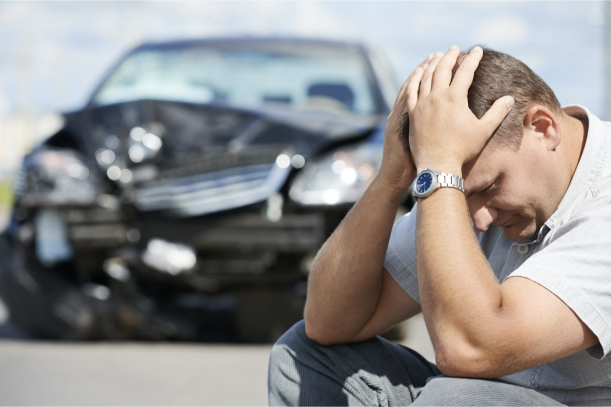Have you ever wondered what happens if you accidentally damage your own car? Maybe you bumped into a pole or hit your other car in the driveway. It’s important to know how your car insurance can help in these situations, especially with something called collision coverage.
Understanding the nuances of your insurance coverage is crucial in these instances.
Collision Coverage Explained
Collision coverage is a part of your car insurance that helps pay for repairs if you damage your car in a crash, no matter if it’s with another vehicle, something like a tree or a pole, or even another car you own. If you accidentally hit something, this coverage can help cover the costs after you pay a small part called a deductible.
Impact on Insurance Premiums
A common concern among drivers is the potential for an increase in insurance premiums after filing a claim for self-inflicted damage. Generally, insurance rates are subject to increase following an at-fault accident, based on the premise that causing an accident indicates a higher risk of future claims. However, the specifics can vary significantly from one insurer to another and depend on individual policy details.
Accident Forgiveness Programs
Some insurance companies have a special program called accident forgiveness. If you’ve been with the company for a while and haven’t had any accidents or tickets, they might not increase your price even if you have an accident. For example, if you’ve been with your insurance company for several years and then have a minor accident, your insurance might not cost more because of it.
Types of Coverage for Self-Damaged Vehicles
If you damage your car by hitting something, you’ll need collision coverage to help with the costs. If something else unexpected, like a storm, damages your car, that’s where comprehensive coverage comes in. Both cover different things, so it’s good to have both to be fully protected.
Third-Party Liability and Uninsured Motorist Coverage
If another driver damages your car, their insurance should pay for your repairs. But if they don’t have enough insurance, your own policy might help cover the costs, thanks to something called uninsured motorist coverage.
Limitations of Liability Insurance
Liability insurance is for paying for other people’s repairs or medical bills if you cause an accident. It doesn’t pay for repairs to your own car. That’s why having collision and comprehensive coverage is important for your protection.
Insurance Claim Denials
Sometimes, insurance might not pay for the damage. This could happen if you don’t have the right type of coverage, the damage is more than your policy covers, you did the damage on purpose, or the insurance company thinks there was fraud involved. It’s key to know what your insurance covers to avoid surprises.
Conclusion
Submitting a claim for damage you caused to your own car can be simple, as long as you have the appropriate coverage. Collision coverage is key in these situations, providing both reassurance and financial support for the repair or replacement of your vehicle. However, it’s essential to understand how filing a claim might affect your insurance premiums and to appreciate the benefits of accident forgiveness options.
By knowing what your insurance does and doesn’t cover, you can feel more secure and ready for any bumps along the way.
FAQs
Are there any specific scenarios where collision coverage would not apply to self-inflicted damage?
Collision coverage typically applies to a wide range of self-inflicted damages. However, it might not cover intentional damage or normal wear and tear. Each policy has its own exclusions and conditions, so it’s important to read your policy details or consult with your insurance agent for specific exclusions.
How does filing a claim for self-inflicted damage affect my eligibility for accident forgiveness?
Eligibility for accident forgiveness generally depends on your driving history and the specifics of your insurance policy. Filing a claim for self-inflicted damage may or may not impact your eligibility, depending on whether your insurer considers it an at-fault accident and if you meet other criteria like maintaining a clean driving record for a certain period.
Can I choose not to file a claim for self-inflicted damage to avoid an increase in my insurance premiums?
Yes, you can choose not to file a claim if you prefer to pay for the repairs out of pocket, especially if the cost is close to or less than your deductible. However, consider whether the long-term cost of premium increases outweighs the immediate repair costs. Consulting with your insurance agent can help you make an informed decision.
What should I do if I disagree with my insurer’s decision to deny a claim for self-inflicted damage?
If your insurer denies your claim and you disagree with the decision, you can first review the terms of your policy to ensure that the damage should be covered. Then, you may appeal the decision within your insurance company by providing additional information or evidence. If you’re still not satisfied, you can consult a legal advisor or contact your state’s insurance department for further assistance.
Get the right coverage for your car with tutenagency
New tutenagency customers?
Quote auto insurance online or call (334) 502-5111 to insure your vehicle.
Legal Disclaimer: ADVERTISING MATERIAL ONLY. Do not rely on this site or this article for legal or financial advice. The information provided on 210agency.com is strictly for educational purposes and to provide you with general educational information. Since state laws and financial regulations are subject to change, please schedule an appointment with an attorney or qualified financial advisor in your area to further discuss your personal situation. This public information is neither intended to, nor will it, create an attorney-client or financial representative relationship.

